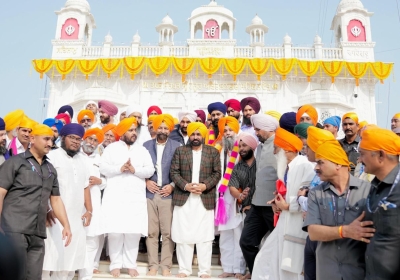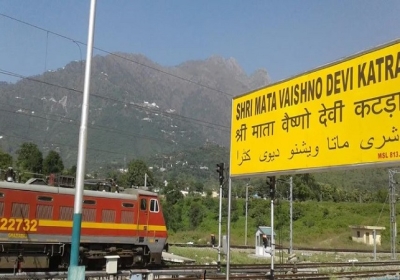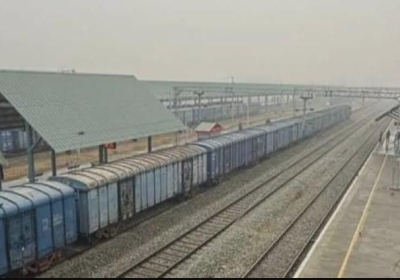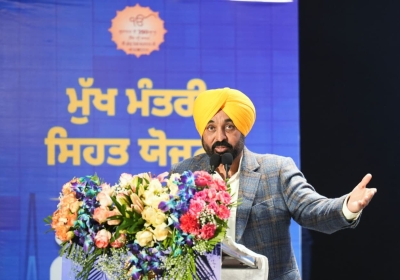
Omar Abdullah says no statehood demand after Pahalgam attack
Omar Abdullah on Pahalgam attack: 'won't use this moment to demand statehood'
- By Gurmehar --
- Monday, 28 Apr, 2025
Jammu and Kashmir Chief Minister Omar Abdullah spoke during a special one-day assembly session on Monday after the deadly terrorist attack in Pahalgam. He said that the government will work harder to defeat terrorism, but victory is only possible with full support from the people. He warned that wrong actions could distance the people from the government, making the fight harder. He also made it clear that he would not use this tragic moment to demand statehood for Jammu and Kashmir.
Omar Abdullah said, “Terrorism will end only when people stand with us. People's anger after the Pahalgam attack shows that change is starting. We must take careful steps now. If we act wrongly and upset the people, we could lose their support. A gun alone cannot defeat terrorism. But if people are with us, terrorism will be defeated. I believe that time has arrived.”
He pointed out that the outrage seen among ordinary citizens after the Pahalgam attack is a very positive sign. For the first time ever, Srinagar’s Jamia Masjid held a two-minute silence before the Friday prayers to honour the people killed in the attack. Omar said this small but important gesture shows that the people want peace, and the government must strengthen this feeling.
The Chief Minister said, “We understand the meaning of this change. Our duty is to strengthen this new feeling in society. We must act wisely.”
Omar Abdullah made it very clear that although the government and leaders have spoken about statehood before, he would not raise the issue at this moment. He said, “After Pahalgam, with what face can I ask the central government for statehood? Twenty-six people died. It would be shameful for me to go and demand statehood now. We have talked about it earlier and will continue to do so in future, but not now.”
Deep sorrow over Pahalgam Attack
Omar Abdullah also spoke emotionally about the scale of the attack and the sorrow it caused. He said that the attack affected the whole nation and that he personally felt helpless in front of the victims' families. The Chief Minister said, “This attack has shaken everyone. Such a big attack happened after 21 years in Baisaran. When I met the families of the dead tourists, I didn’t know how to even say sorry. As the host, it was my duty to ensure the safety of tourists. I could not do that. I do not even have the words to apologise.”
The Pahalgam attack happened on April 22, when terrorists opened fire at tourists gathered in a meadow near Pahalgam. Twenty-six people were killed in the brutal assault. It was one of the deadliest attacks in the region after a long gap of more than two decades. The attack has left the entire nation angry and heartbroken.
Following the attack, India has taken strong action against Pakistan. Diplomatic ties between India and Pakistan have been downgraded. India has also suspended the Indus Waters Treaty as part of its response.
ALSO READ: India rejects Bangladesh official’s remarks on West Bengal communal violence
The Jammu and Kashmir assembly earlier passed a resolution strongly condemning the attack, calling it an assault on "Kashmiriyat" — the traditional spirit of Kashmir's unity, hospitality, and peace. Leaders across political parties stood together to express grief and unity against terrorism.
Omar Abdullah stressed once again that the government must work alongside the public. He said it is public anger, solidarity, and resistance that will defeat militancy — not weapons alone. He called on everyone to ensure that people do not feel isolated or alienated by any government actions.
He added, “This is a turning point. If we walk carefully, terrorism can end. Otherwise, we risk losing public support, which is our biggest strength.”
The Chief Minister’s speech reflected a careful, balanced approach: mourning the loss, promising a stronger fight against terrorism, but also maintaining humility and emotional connection with the people. His decision not to raise the demand for statehood at this moment was widely seen as a mature and sensitive move.
The tragic Pahalgam attack has left a deep wound on the nation’s heart, but it has also united people in grief and anger against terrorism. Leaders like Omar Abdullah are urging that this unity must be carefully preserved and strengthened for the sake of long-term peace.





